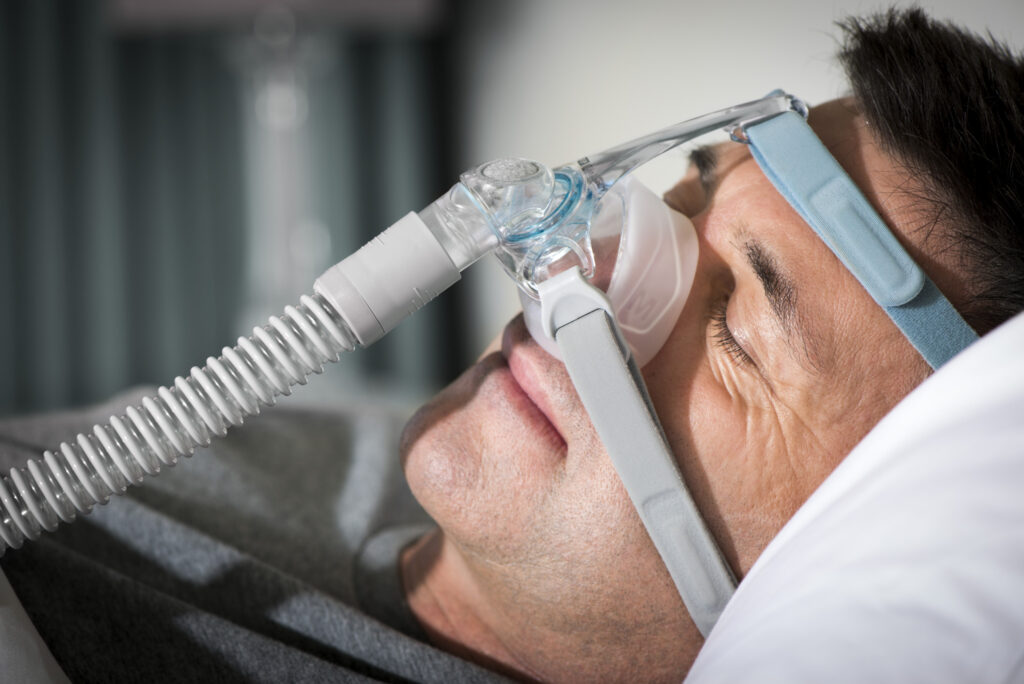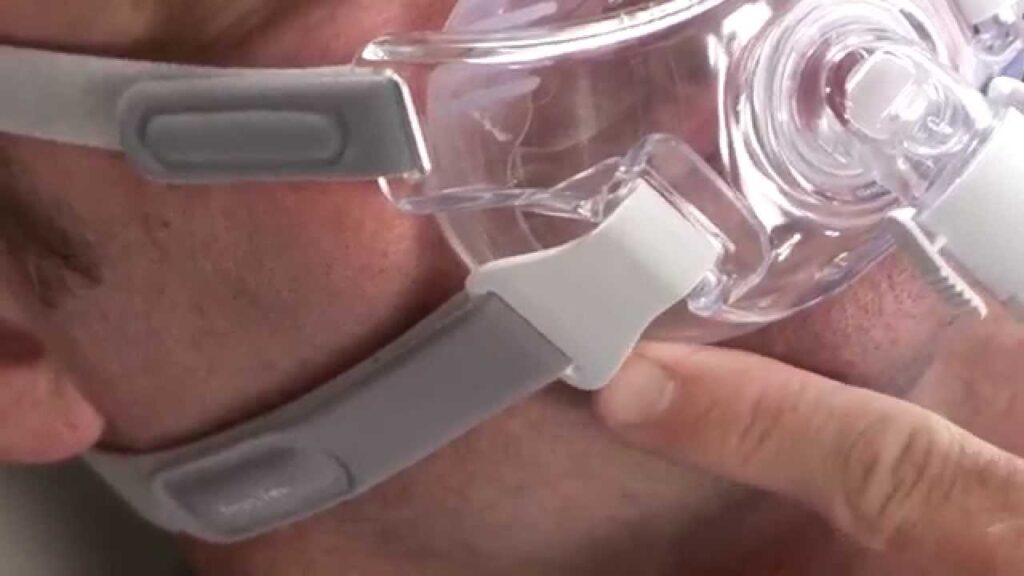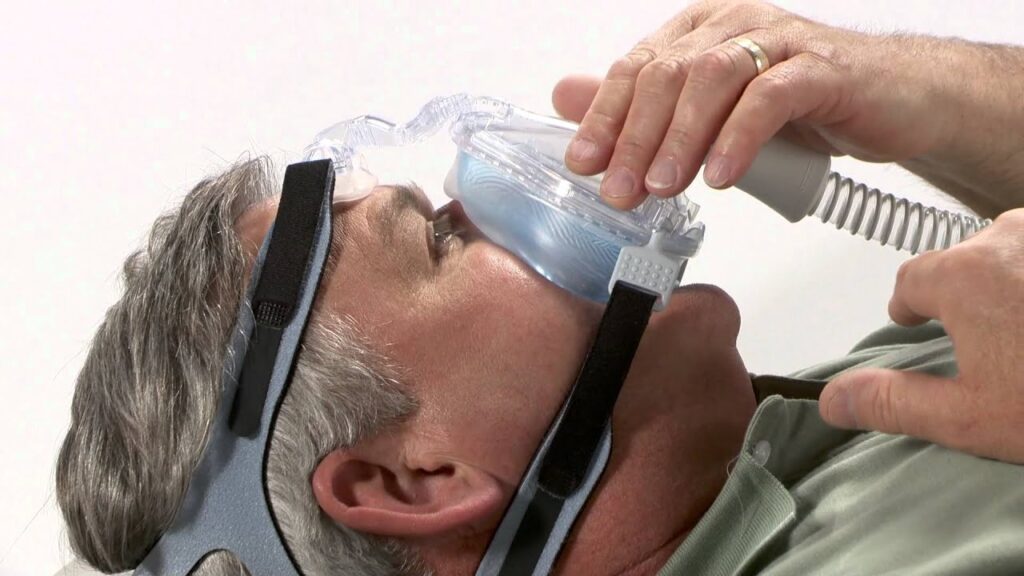Do you struggle with getting a good night’s sleep due to sleep apnea? If so, you’re not alone. Sleep apnea affects millions of people worldwide, but fortunately, there are effective treatments available. One such treatment is the use of CPAP masks. In this comprehensive guide, we will explore the importance of CPAP masks, the different types available, factors to consider when choosing a mask, proper maintenance and care, as well as strategies for overcoming common mask problems. By the end, you’ll be equipped with the knowledge to navigate the world of CPAP masks and achieve a restful night of sleep.
Understanding the Importance of CPAP Masks
The Role of CPAP Masks in Sleep Apnea Treatment
Sleep apnea is a serious sleep disorder characterized by pauses in breathing or shallow breaths during sleep. These pauses showed by sleep apnea test Perth can occur multiple times throughout the night and can lead to fragmented sleep and daytime fatigue.
A CPAP (continuous positive airway pressure) machine is commonly used to treat sleep apnea. The machine delivers a constant flow of air through a mask that covers the nose and/or mouth, keeping the airway open and promoting uninterrupted breathing.
When it comes to sleep apnea treatment, CPAP masks play a crucial role. They act as a barrier between the patient’s airway and the outside environment, ensuring a continuous supply of pressurized air. The mask’s design is carefully crafted to fit securely over the nose and/or mouth, creating a seal that prevents air leakage. This seal is essential for maintaining the desired air pressure and maximizing the effectiveness of the therapy.

CPAP masks come in various styles and sizes to accommodate different individuals’ needs and preferences. Some masks cover only the nose, while others cover both the nose and mouth. Additionally, there are masks designed specifically for individuals who breathe through their mouth or have facial hair. The wide range of options ensures that each patient can find a mask that suits them best, promoting comfort and compliance with the therapy.
Health Benefits of Using CPAP Masks Regularly
The use of CPAP masks has numerous health benefits for individuals with sleep apnea. By improving the quality of sleep, CPAP therapy can help reduce daytime fatigue, enhance cognitive function, and improve overall mood and quality of life.
When sleep apnea is left untreated, the constant interruptions in breathing can lead to chronic fatigue and excessive daytime sleepiness. This can negatively impact a person’s ability to concentrate, perform daily tasks, and even increase the risk of accidents, especially while driving. By using CPAP masks regularly, individuals can experience a significant improvement in their energy levels and daytime alertness, allowing them to lead a more active and productive life.
Furthermore, untreated sleep apnea is linked to increased risk of serious health conditions such as high blood pressure, heart disease, stroke, and diabetes. The repetitive drops in oxygen levels during sleep can put a strain on the cardiovascular system and disrupt metabolic processes. By effectively treating sleep apnea with CPAP therapy, these associated health risks can be significantly reduced.
Research has shown that consistent use of CPAP masks can help lower blood pressure levels, improve cardiac function, and reduce the risk of cardiovascular events. The positive airway pressure provided by the CPAP machine helps keep the airway open, preventing the collapse of soft tissues that contribute to sleep apnea. This, in turn, reduces the workload on the heart and promotes healthier blood flow.
In addition to the cardiovascular benefits, CPAP therapy can also have a positive impact on insulin sensitivity and glucose metabolism. Sleep apnea has been linked to insulin resistance and an increased risk of developing type 2 diabetes. By effectively treating sleep apnea with CPAP masks, individuals can improve their glycemic control and reduce the likelihood of developing diabetes.
Overall, the regular use of CPAP masks not only improves sleep quality and daytime functioning but also plays a vital role in reducing the risk of serious health complications associated with untreated sleep apnea. By ensuring a continuous supply of pressurized air, CPAP masks provide individuals with the support they need to breathe freely and enjoy a healthier, more fulfilling life.
Exploring Different Types of CPAP Masks
When it comes to treating sleep apnea, CPAP therapy is a common and effective solution. CPAP, or Continuous Positive Airway Pressure, involves the use of a machine that delivers a steady flow of air to keep the airway open during sleep. One of the key components of CPAP therapy is the CPAP mask, which plays a crucial role in delivering the pressurized air to the individual.
There are several types of CPAP masks available on the market, each with its own set of pros and cons. In this article, we will explore three popular types of CPAP masks: full face masks, nasal masks, and nasal pillow masks.
Full Face CPAP Masks: Pros and Cons
Full face CPAP masks are designed to cover both the nose and mouth, making them suitable for individuals who breathe through their mouth or experience difficulty breathing through the nose. These masks provide a secure seal and prevent air leaks, ensuring that the pressurized air reaches the airway effectively. However, some users may find full face masks bulkier and less comfortable compared to other mask types. The larger size of these masks can make it challenging for individuals who sleep on their stomach or side, as they may experience pressure points or discomfort.
Nasal CPAP Masks: What You Need to Know
Nasal CPAP masks, as the name suggests, cover only the nose. They are a popular choice for individuals who primarily breathe through their nose. Nasal masks tend to be less intrusive and easier to wear for extended periods, as they are generally smaller and lighter than full face masks. The compact design of nasal masks also allows for a wider field of vision, making it easier to read or watch TV before falling asleep. However, it’s important to note that nasal masks may not be suitable for individuals with chronic nasal congestion or allergies, as they may exacerbate these conditions.
Nasal Pillow Masks: Is It Right for You?
Nasal pillow masks are a relatively new innovation in CPAP therapy. These masks feature small, soft cushions that sit at the entrance of the nostrils, delivering airflow directly into the nose. Nasal pillow masks are known for their lightweight and minimalistic design, making them an ideal choice for individuals who prefer a less obstructive mask. The open field of vision provided by nasal pillow masks allows users to wear glasses or read comfortably before bed. However, it’s important to consider that nasal pillow masks may not be suitable for individuals with higher pressure settings, as the direct airflow into the nostrils can cause discomfort or irritation.
Choosing the right CPAP mask is a crucial step in ensuring effective and comfortable therapy. It’s important to consult with a healthcare professional or CPAP supplier to determine which mask type is best suited for your individual needs and preferences. Factors such as breathing patterns, facial structure, and personal comfort should all be taken into consideration when selecting a CPAP mask. Remember, finding the right mask can greatly enhance the overall CPAP experience and improve compliance with therapy.
Choosing the Right CPAP Mask for You
Factors to Consider When Selecting a CPAP Mask
When it comes to managing sleep apnea, selecting the right CPAP mask is crucial. There are several factors that need to be taken into consideration to ensure optimal comfort and effectiveness. Firstly, consider your breathing patterns and whether you primarily breathe through your mouth or nose. This will help determine whether a full face, nasal, or nasal pillow mask is most suitable for you.
If you are a mouth breather, a full face mask may be the best option as it covers both the nose and mouth, allowing you to breathe freely. On the other hand, if you primarily breathe through your nose, a nasal mask that covers only the nose may be more comfortable and effective. For those who prefer a minimalist design, nasal pillow masks that fit directly into the nostrils can provide a lightweight and unobtrusive option.
Additionally, consider the comfort and fit of the mask. A mask that is too tight or uncomfortable can lead to discomfort and may even cause skin irritation. Look for masks with adjustable straps and cushioning to ensure a secure yet comfortable fit. Some masks even come with gel or silicone cushions that conform to the contours of your face, providing a personalized fit.
It’s also important to choose a mask that is compatible with your CPAP machine. Different machines may have specific requirements for the type of mask that can be used. Make sure to check the compatibility of the mask with your machine to avoid any compatibility issues.
Understanding Your Sleep Habits and Preferences
Another important aspect to consider when choosing a CPAP mask is your individual sleep habits and preferences. Take into account whether you tend to sleep on your back, side, or stomach, as certain mask types may work better for different sleeping positions.
If you are a back sleeper, a full face mask or a nasal mask may be suitable as they provide a secure fit even when you change positions during the night. Side sleepers may find nasal masks or nasal pillow masks more comfortable as they allow for better freedom of movement. Stomach sleepers, however, may face challenges with any mask type as the pressure from the mask may cause discomfort in this position.
It may also be helpful to try on different masks and seek advice from a healthcare professional to ensure that you find a mask that best suits your needs. They can provide valuable insights and recommendations based on your specific sleep apnea diagnosis and individual preferences.
Remember, choosing the right CPAP mask is essential for effective sleep apnea treatment. By considering factors such as breathing patterns, comfort, fit, and sleep habits, you can find a mask that not only ensures a good night’s sleep but also improves your overall quality of life.

Proper Maintenance and Care for CPAP Masks
Cleaning Your CPAP Mask: Best Practices
Maintaining cleanliness and hygiene is crucial when using CPAP masks. Regular cleaning helps prevent the buildup of bacteria, mold, and other allergens. It is recommended to clean your mask daily using mild soap and warm water. Ensure that all parts are thoroughly rinsed and air-dried before use.
Consider using specialized mask wipes or sanitizing machines for added convenience and thorough cleaning.
When and How to Replace Your CPAP Mask
CPAP masks have a limited lifespan and should be replaced periodically to ensure optimal performance and comfort. On average, masks should be replaced every 6-12 months, or earlier if signs of wear and tear are present.
It’s important to regularly inspect your mask for any cracks, leaks, or damaged components. If you notice any issues, it may be time to replace your mask.
Overcoming Common CPAP Mask Problems
Dealing with Mask Discomfort and Irritation
Mask discomfort and irritation are common problems faced by CPAP users. To address these issues, ensure that your mask is properly fitted and adjusted for a comfortable seal. Experiment with different types of cushions or mask styles to find the best fit for you.
Using mask liners, nasal sprays, or moisturizers can also help ease discomfort and irritation.
Tips for Managing Air Leaks
Air leaks can disrupt the effectiveness of CPAP therapy. To minimize air leaks, ensure that your mask is properly positioned and tightened. Regularly check the seal and make adjustments if necessary.
If persistent air leaks are an ongoing issue, consult with your healthcare provider. They may suggest trying a different mask style or using additional accessories, such as chin straps, to help maintain a secure seal.
In conclusion, CPAP masks play a crucial role in sleep apnea treatment by improving sleep quality and reducing associated health risks. By understanding the different types of masks, considering individual needs and preferences, and properly maintaining and troubleshooting mask problems, you can navigate the world of CPAP masks with confidence and achieve a restful night of sleep. Remember to consult with your healthcare provider for personalized advice and recommendations. Rest easy knowing that better sleep and improved well-being are within reach with the right CPAP mask.

